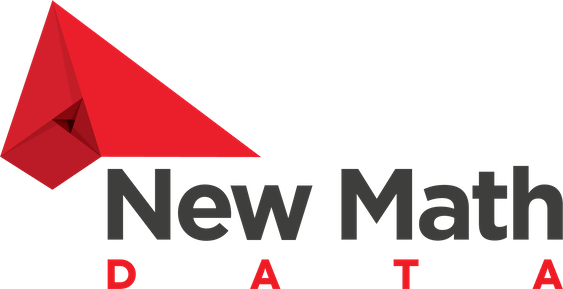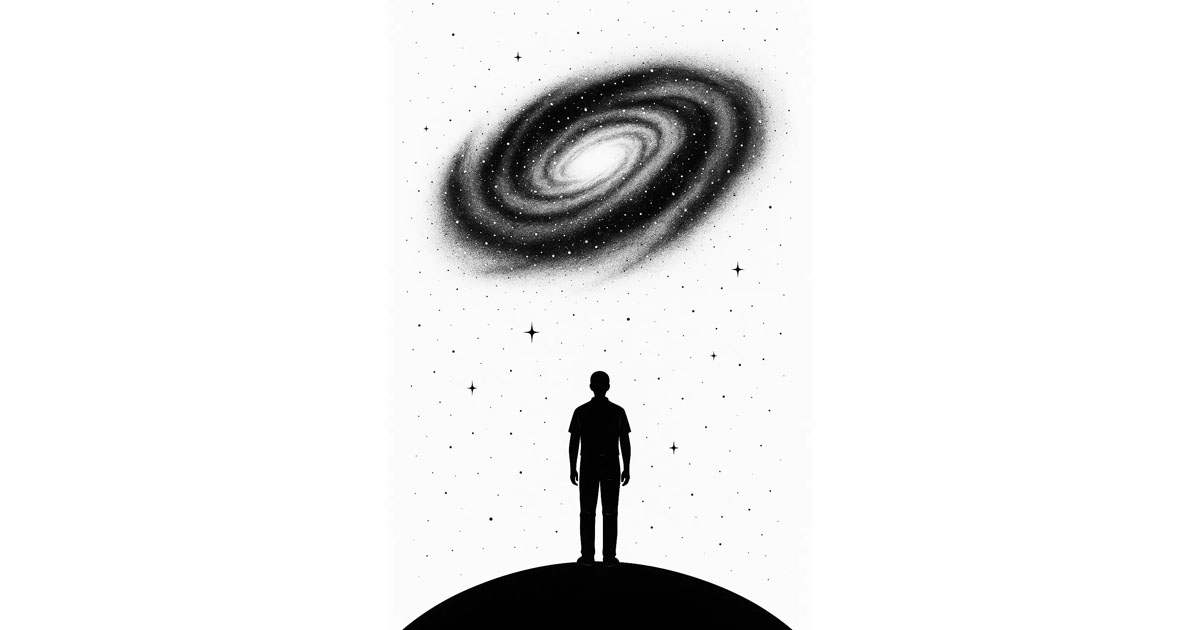TL;DR:
Science fiction taught us to treat the cosmos as unknowably vast, and we stopped trying to understand it. Cosmology became a postgraduate pursuit instead of a public curiosity. The Renaissance and the Industrial Revolution democratized knowledge; the AI revolution is privatizing it.
1. When Wonder Replaced Curiosity
As a kid, I never understood why it was “a long time ago in a galaxy far, far away.” Grade-school English said every story needs a where and a when. That phrase erased both — turning space into myth.
A century ago, Edwin Hubble proved that Andromeda lay far beyond our Milky Way. It should have expanded the human imagination. Instead, it capped it.
Science fiction inherited that discovery and turned it into theology. Galactic stopped meaning a cluster of stars around a super-massive blackhole; it started meaning everything there is. From Asimov’s empires to Lucas’s crawl text, “galactic” became shorthand for infinity: an emotional placeholder for comprehension. Audiences learned to marvel, not to question.
Science fiction didn’t just mirror our limits. It laminated them.
2. Awe Without Comprehension
Something subtle happens when wonder stops leading to questions and starts serving as a conclusion.
Science fiction made the cosmos visible but unreachable. Hyperspace, wormholes, warp drives — they were never explanations, only invitations to stop asking. Seventy-three percent of Americans know astronomy isn’t astrology. Fewer know how galaxies form, or why the sky glows in microwaves. Fiction gave us awe without understanding — a cultural sleight of hand once perfected by religion.
The stars became symbols again, not subjects. And when mystery becomes a form of entertainment, curiosity dies quietly.
3. The Renaissance and Industrial Counterpoint
It wasn’t always this way. The Renaissance turned magic into mechanics — anatomy, perspective, astronomy — once divine, now teachable. By 1600, male literacy in parts of Europe had at least doubled; books became blueprints for power.
The Industrial Revolution did the same for technology. Steam and chemistry moved from alchemy to apprenticeship. Knowledge scaled downward: from guild to factory to child.
Both eras democratized comprehension. They treated understanding as a civic right.
4. The AI Reversal
Artificial intelligence flips that script. Where earlier revolutions made power accessible through understanding, the AI revolution makes it accessible without it.
You can now code, compose, or invent without knowing how. The interface absorbs the complexity.
For the first time in history, capability outpaces comprehension by design.
- In the Renaissance, literacy came before literature.
- In the Industrial Age, mechanics came before machines.
- In the AI Age, machines come before mechanics.
Each prompt hides a stack of logic the user never sees. The convenience is the camouflage.
5. The Illusion of Competence
AI doesn’t make people stupid; it makes them fluent — which is worse. Its outputs are confident, formatted, and wrong only in ways that feel right. It generates what might be called synthetic understanding: the look of knowledge without the labor of earning it. That’s the same trick science fiction pulled with the galaxy; it replaced comprehension with coherence.
We didn’t stop knowing. We stopped noticing what we didn’t know.
6. When Ignorance Becomes a System
Ignorance used to be a gap. Now it’s a feature. Our media and algorithms reward believability over truth because coherence is easier to monetize. AI supercharges that bias, producing consensus at scale. Only 16% of Americans scored above 60% on a basic AI-literacy test.
Among U.S. teachers, just 6% think AI does “more good than harm.” The majority are already outpaced by their own tools. Civilization now evolves toward maximum information and minimum understanding, a kind of intellectual entropy.
Exposure feels like expertise, and illusion feels like insight.
7. Cosmology as the Mirror
The universe itself offers the metaphor. Every second, more of it slips beyond our light horizon — receding faster than we can observe. Knowledge behaves the same way. As AI accelerates production, the frontier of true comprehension retreats. We can do more, know less, and mistake the former for the latter.
The observable universe of human expertise shrinks inside an expanding fog of convenience.
8. The Renaissance That Never Came
If the Renaissance taught us to see and the Industrial Age taught us to build, the AI Age should be teaching us to reason. Instead, it teaches us to prompt.
The Renaissance began with discomfort — the shocking realization that Earth was not the center of the cosmos. Copernicus published De revolutionibus orbium coelestium in 1543, but he waited until he was dying to release it, afraid of the cultural whiplash it would cause. His printer slipped in a disclaimer saying it was “only a hypothesis,” like a medieval version of a YouTube “not medical advice” tag.
The discomfort worked. Curiosity became contagious. Leonardo da Vinci wrote anatomical notes backward in mirror script, half out of paranoia and half because he thought better while sketching. Every mind of that era carried some productive tension between fear and fascination.
AI removes that tension. It delivers certainty on demand. Every answer looks polished, every output feels final. The Renaissance made people uneasy enough to think. AI makes people comfortable enough to stop.
Even the printing press — the first true “information explosion” — produced confusion before clarity. Within 40 years of Gutenberg’s Bible, Europe had thousands of astrology pamphlets, miracle catalogs, and fake indulgence guides. The chaos forced literacy to evolve. Readers learned skepticism as a survival skill. We’re skipping that phase. The AI press prints perfection. There’s no noise to sharpen the mind against.
The tragedy isn’t that AI replaces thought; it’s that it anesthetizes the very muscle that once sought it.
9. The Small Circle of Clarity
You can’t fix this globally. But you can resist it locally.
Keep a small circle of clarity — people and practices that still reward understanding over output. Think of it as the intellectual version of a Renaissance workshop: a place where apprentices learned by touching the mechanism, not by asking a machine to describe it.
When Galileo taught at Padua, his students built their own telescopes from scratch because there were no instructions. They learned the stars by grinding glass. That’s the model worth reviving: comprehension through construction.
In modern terms, it means doing the slow thing on purpose — tracing the code path instead of trusting the docstring, calculating a number before pasting it into Excel, or reading the whole paper instead of the summary. These tiny rebellions create cognitive calluses.
Stay curious longer than comfort allows. In a world that automates everything, the rarest skill left will be knowing why something works — not just how to make it perform.
Quirky proof: psychologists call it the “IKEA Effect” — people value furniture more when they build it themselves. The same applies to knowledge. Effort binds understanding to memory. Convenience dissolves it. The Renaissance had its workshops. The Industrial Age had its labs.
Maybe the AI Age needs its clarity circles — small groups that refuse to confuse fluency for understanding, and keep thinking as a human by choice.
10. The True Frontier
Science fiction turned the galaxy into myth. AI turns intelligence into atmosphere. Both make the unknown feel unreachable. But the real frontier was never out there. It’s the human mind’s relationship to the unknown. When wonder leads to study, civilizations grow.
When it leads to spectacle, they stagnate.
- The Renaissance turned ignorance into curiosity.
- The Industrial Age turned curiosity into power.
- The AI Age risks turning power back into ignorance.
We may not outlast that cycle. But we can choose not to live inside it. Because understanding — real, hard-won, first-principles understanding — isn’t nostalgia. It’s the only way to stay human in a universe where intelligence has become ambient, and meaning has gone missing.

